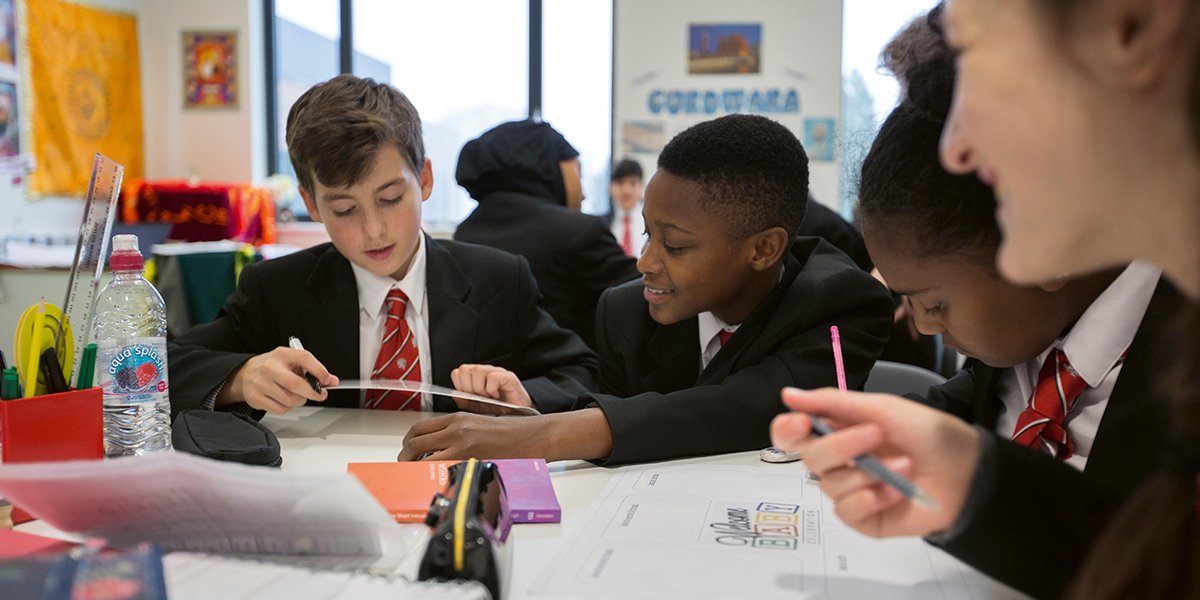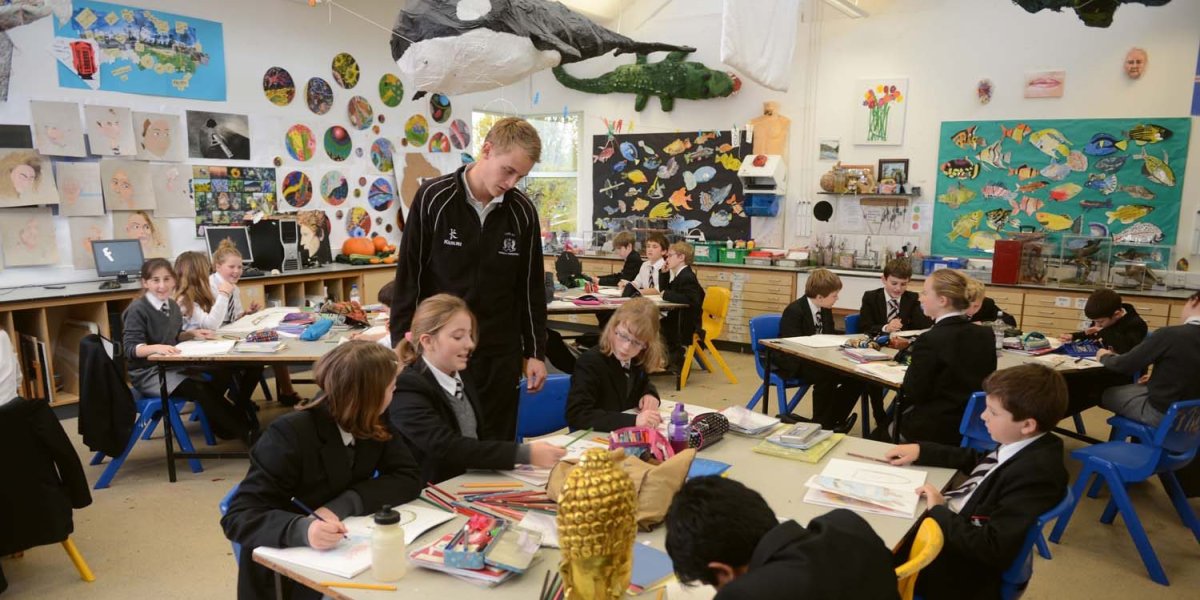Credit: Adrian Sherratt / Alamy
School of thought
Greater empathy equals greater benefits for pupils
When the World Economic Forum (WEF) argued for more education focused on the development of interpersonal skills, it highlighted the key role of empathy. “The future of education lies in empowering young learners to embrace and develop their uniquely human qualities, those unlikely to ever be replaced by technology,” says the WEF in its Defining Education 4.0 white paper.
“The science, both in terms of genetics and neuroscience, has shown that we are born with some empathy, but that it can go by the wayside as we get older,” says Dr Helen Demetriou, a chartered psychologist and Associate Professor of Psychology at the Faculty of Education. And although it is often considered innate, evidence suggests that empathy can in fact be taught, something that Demetriou has dedicated her life’s work to. And now she has helped design and carry out a new study investigating the effects of teaching empathy to primary and secondary school pupils.
Ten schools in six countries took part, with more than 900 children, aged between 5 and 18. After just one term, the results were dramatic, with measurable, positive changes in the pupils’ conduct, emotional awareness, wellbeing and curiosity about different cultures.
“I think that everyone in my class has become kinder,” one student told researchers; “I’ve definitely been able to resolve more issues in the classroom and not have parents called in,” said a teacher. “My work was in collaboration with an organisation called Empathy Studios,” says Demetriou. “They produce immersive videos that they take into schools and show children to enhance empathy awareness and practice.”
Over 10 weeks, pupils watch a series of videos depicting diverse human experiences and then participate in discussion and reflection. The study found that exposure to the videos impacted very positively on pupils and teachers in a variety of ways.

“It showed an increase in their empathy knowledge and skill, but also better wellbeing, social skills, academic achievement and a decrease in antisocial behaviours, such as bullying,” says Demetriou. To assess the impact of Empathy Studios’ work, Demetriou and the team conducted qualitative and quantitative analysis. In the latter, teachers rated students’ behaviour and characteristics on a scale of 1 to 10 before the programme began, at a halfway point and at the end of the 10-week period. The average empathy score went from 5.55 to 7, and average behaviour scores rose from 6.52 to 7.89.
For Demetriou, the most striking thing about the study has been feedback from people who say that gaining a greater awareness of empathy has revolutionised how they view themselves and others. “I had a hunch there would be an impact, but the data speaks for itself,” she says. This latest research follows Demetriou’s study (Demetriou & Nicholl, 2021), where Year 7 and 9 pupils used tools to boost empathetic thinking in their Design and Technology classes. They were studied alongside a control group who followed the standard curriculum. At the end of the school year, the intervention group’s creativity scores were 78 per cent higher than the control group. Most of that rise, the research noted, was driven through the empathy intervention.
Integrating empathetic thinking into day-to-day lessons is one of Demetriou’s hopes for the future. “To have it embedded into the curriculum – not as an add-on but truly embedded – is the ideal,” she says. “This research has shown the benefits – the social, emotional, academic and behavioural effects – so I think the more empathy training we have in the curriculum the better it will be in terms of producing more rounded people who are better equipped to succeed in the outside world.”
The study found an increase in their empathy knowledge and skill, but also better wellbeing, social skills and academic achievement
The academic benefits that disadvantaged children gain from socio-emotional skills were found to be similar to those gained by advantaged children. This contradicts the widely held assumption that focusing on these skills is especially important for children from socio-economically disadvantaged backgrounds, a belief which underpins many social and emotional learning programmes.
“Students who lack the right mindset may perform less well at school, but that may be because their academic performance has eroded their self-belief; not the other way round,” says Isabel Raabe, a researcher in the Department of Sociology at the University of Zürich.
Developing social and emotional skills is hugely valuable for all children says another of the report’s co-authors, Nicolas Hübner, assistant professor at the University of Tübingen, but the evidence suggests it has little to do with why low-income students are more likely to struggle academically. “According to our results, it is not a magic bullet for tackling the socioeconomic achievement gap.”
 CAM
CAM